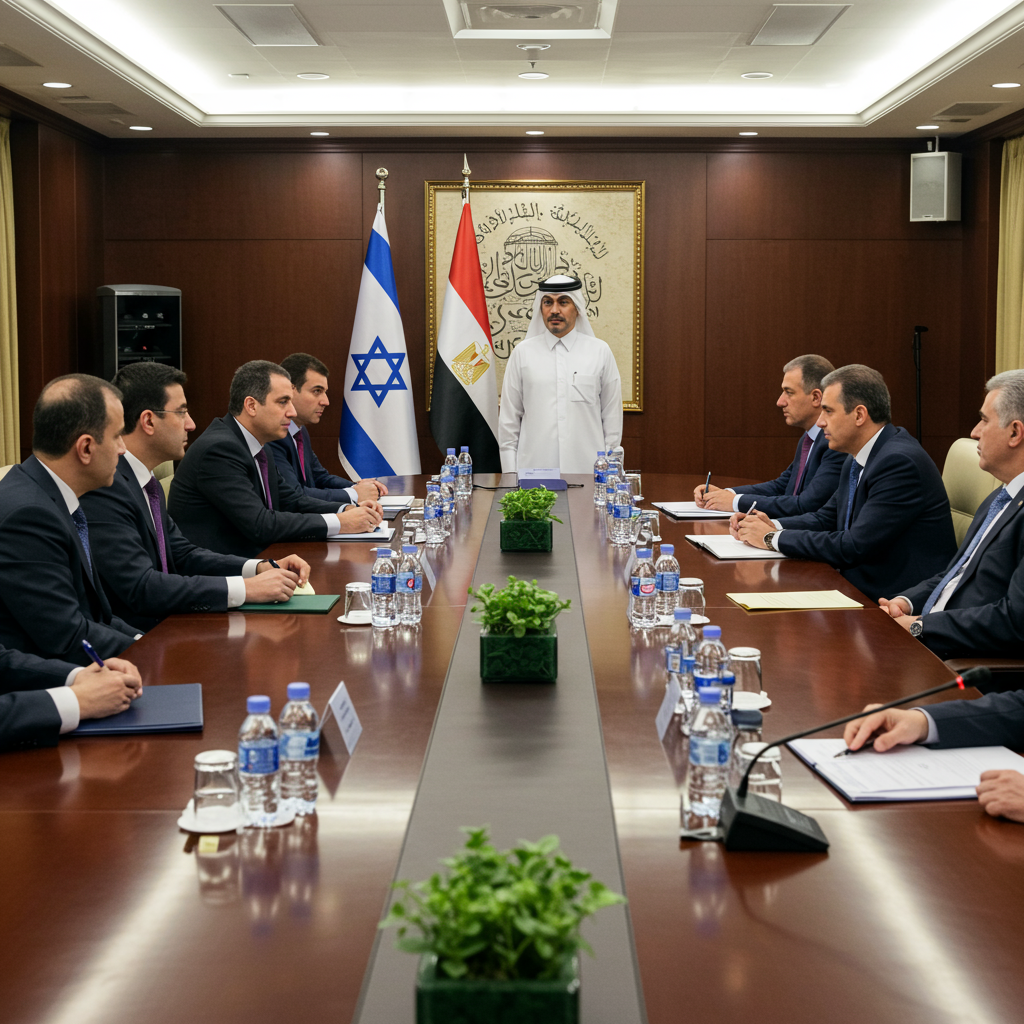Westminster witnessed a moment of raw emotion during a recent Prime Minister’s Questions (PMQs) session, casting a spotlight on the intense pressures faced by politicians and revealing apparent strains within the Labour leadership. The focus fell sharply on Labour’s Shadow Chancellor, Rachel reeves, whose visible distress underscored a challenging period for the opposition party, particularly in the wake of controversy surrounding a key welfare bill. This public display prompted questions not only about Reeves’s position but also about Keir Starmer’s leadership style when confronted with adversity.
The atmosphere in the House of Commons was described as tense and difficult. Reeves appeared visibly emotional, struggling with tears during the session. This deeply personal reaction, exposed under the unforgiving glare of public scrutiny, served as a stark reminder of the human toll exacted by the demanding world of high-stakes politics. Politicians, like anyone else, feel immense pressure, and this was a clear manifestation of that strain.
The Weight of the Welfare Bill Controversy
The backdrop to this emotional moment was a contentious welfare bill that had recently undergone significant changes. Critics, according to reports, dubbed the altered legislation “WINO” (Welfare In Name Only), claiming it had been “gutted.” These changes reportedly resulted in a loss of £5 billion in planned government savings.
As Shadow Chancellor, Rachel Reeves was seen as bearing the brunt of the political fallout from this legislative setback. She was tasked with defending the party’s position on a policy that had seemingly unravelled, leaving her exposed to criticism and questions about Labour’s economic competence and preparedness for government. This specific policy challenge created a volatile environment for the PMQs session.
A Human Moment in the Public Eye
Witnessing Rachel Reeves’s tears in such a public forum was widely described as painful. It felt like an intrusion into a private moment, a display of vulnerability rarely seen in the often-guarded environment of Westminster. This moment highlighted the disconnect between the perceived stoicism of political figures and their underlying human fragility.
In the brutal landscape of parliamentary politics, moments of weakness can be quickly exploited. Reeves was left to navigate this difficult period while under intense pressure. The public nature of her distress underscored the constant scrutiny politicians face, where every reaction, every expression, can become fodder for commentary and political analysis.
Starmer’s Performance Under Scrutiny
Amidst the focus on Rachel Reeves, attention also turned to Keir Starmer’s handling of the situation. His response during and after Reeves’s emotional display drew significant criticism from observers. He was perceived by some as failing to adequately defend her or offer immediate support.
Starmer’s behaviour was interpreted by some as indicative of a leader in “survival mode,” primarily focused on protecting his own image and navigating the difficult session for himself. His reaction, or lack thereof, during Reeves’s evident distress was highlighted as particularly striking. This perceived detachment raised questions about his leadership qualities and how he supports his frontbench team during crises.
Leadership in Crisis?
The incident fueled discussions about Starmer’s approach to leadership, particularly when faced with unexpected challenges or emotional situations. Critics suggested he appeared too wrapped up in his own performance to fully register or respond to the distress of his Shadow Chancellor. This perception of being overly self-focused contrasted sharply with the expectation of a leader providing support and solidarity to a key colleague under pressure.
This event, combined with observations from other recent high-pressure situations, such as his handling of difficult questions during international trips or parliamentary committees, contributes to a narrative that Starmer can sometimes appear evasive or detached when challenged outside of his prepared talking points. His preference for controlled environments, noted in analyses of his appearances before committees, contrasts with the unpredictable nature of PMQs.
Evasion and Set Pieces
During the PMQs session, Starmer’s performance was also critiqued for what appeared to be an attempt to normalize the difficult situation and rely on prepared exchanges. He was noted for taking a seemingly pre-arranged question from a supportive Labour MP early in the session.
This tactic, while common, was seen by some as an effort to steer the debate away from the immediate difficulties and the visible distress of his colleague. His responses to questions about the welfare bill were reportedly framed around positive aspects of Labour’s past or proposed policies, sometimes appearing disconnected from the recent setback and the £5 billion loss, reinforcing the idea that he was attempting to weather the storm rather than directly address its core issues.
The Opposition’s Attack
Facing Starmer at PMQs was Conservative MP Kemi Badenoch. Despite being described by the original author as possessing an off-putting manner marked by superiority and condescension, Badenoch was seen as effectively exploiting the situation. She reportedly landed significant blows against Starmer.
Badenoch’s strategy involved focusing on the welfare bill’s financial implications and directly questioning Rachel Reeves’s future position as Shadow Chancellor. Her pointed remarks about Reeves being potentially “toast” were highlighted as the immediate trigger for the Shadow Chancellor’s visible emotional reaction. This exchange demonstrated Badenoch’s willingness to launch direct and personal attacks.
Landing Punches: Badenoch’s Strategy
Badenoch’s approach was characterized by sharp, targeted attacks aimed at highlighting Labour’s recent difficulties. By focusing on the £5 billion welfare saving loss and the resulting pressure on Reeves, she effectively put the Labour leadership on the defensive. Her ability to draw a visible reaction from Reeves underscored the effectiveness, albeit perhaps ruthless, nature of her parliamentary tactics in this instance.
Despite criticisms of her style, Badenoch managed to create a difficult situation for Starmer and his frontbench. Her performance in this PMQs session was seen as a notable “win” for her, particularly in directly challenging the Labour leader and his team on a sensitive issue.
Style vs. Substance
While acknowledged as effective in her attack, Badenoch’s overall approach was subject to criticism regarding her parliamentary manner. Her perceived arrogance and tendency for “gratuitous swipes” were noted as potentially alienating. However, in this specific exchange, her focus on a clear point of vulnerability for Labour – the welfare bill and its implications for the Shadow Chancellor – allowed her to cut through despite these criticisms. This highlights how sometimes, aggressive questioning, even if off-putting in style, can be politically impactful.
Strains in the Labour Leadership
The events of the PMQs session brought into sharp focus perceived strains within the Labour leadership. The partnership between Keir Starmer and Rachel Reeves had previously been portrayed as a strong, complementary unit – often referred to as the “Keir and Rachel show.” Starmer was presented as the public face, while Reeves was positioned as the crucial “economic brains,” essential for reassuring the country and financial markets about Labour’s credibility.
This public display of emotion under pressure, coupled with the perceived lack of immediate support from Starmer, suggested that this once-touted partnership might be facing significant challenges. The idealised image of a united front appeared to fracture in the heat of parliamentary combat.
The Partnership Under Pressure
In opposition, the Starmer-Reeves duo was often framed as the antidote to perceived Conservative incompetence. However, the difficult PMQs session and the context of the welfare bill controversy indicated that their “joint project” might be encountering serious difficulties. Navigating the realities of potential government, even in opposition, brings immense pressure, and the cracks in their united image became apparent.
The incident raised questions about the dynamics between Starmer and Reeves. Was Reeves being unfairly exposed? Was Starmer adequately prepared or willing to defend his Shadow Chancellor robustly during such a difficult moment? The event suggested a potential misalignment or lack of communication under duress.
Questioning Future Roles
The public questioning of Rachel Reeves’s future position by Kemi Badenoch, coming at a moment of visible distress, felt particularly sharp. While Number 10 later affirmed Reeves’s position, the public nature of the challenge and the lack of an immediate, forceful defence from Starmer fuelled speculation.
Rachel Reeves is known to have long-held ambitions for the role of Chancellor. The events suggested that her future in this key position might be less secure than previously thought, facing pressure both from the opposition and potentially from within the dynamics of the Labour leadership itself. The question lingered whether she might be, in a sense, sacrificing her own standing to absorb political pressure directed at the wider party leadership.
Broader Context of Political Pressure
The intense pressure seen during this PMQs session is not an isolated incident but reflects the constant demands of high-level politics in the UK. Political figures regularly face scrutiny, criticism, and unexpected challenges that test their composure and leadership.
This particular event aligns with other recent observations regarding Starmer’s performance under pressure. Analyses of his appearances in various forums suggest a pattern of preferring controlled environments and sometimes appearing uncomfortable or evasive when faced with unscripted or deeply challenging questions. This reinforces the idea that navigating unpredictable political moments, like a highly charged PMQs session, can be particularly taxing for his leadership style.
Starmer’s Evasive Tendencies Elsewhere
Reports detailing Starmer’s interactions during international trips or committee hearings have sometimes highlighted a tendency towards cautious, non-committal responses on complex domestic issues, preferring to defer difficult questions or stick to established lines. This pattern of evasion can be interpreted as a strategy to avoid missteps, but it can also give the impression of lacking concrete plans or the willingness to tackle controversial topics head-on. The PMQs incident fits into this broader picture of a leader who appears most comfortable when the political ground is firm and predictable.
The Unpredictable Landscape
The political landscape is inherently unpredictable, marked by sudden controversies, economic shocks, and the actions of other political actors. The recent challenges faced by the Labour party, including the fallout from the welfare bill and the intense scrutiny at PMQs, underscore the difficulties of maintaining a stable image and clear strategy in such an environment. Dealing with external pressures, whether from domestic political opponents or international events like the imposition of tariffs, requires adaptability and robust leadership, qualities that were questioned in the aftermath of this particular parliamentary exchange.
Frequently Asked Questions
What caused Rachel Reeves to become emotional during PMQs?
Rachel Reeves appeared visibly emotional and tearful during a PMQs session following difficulties surrounding a key welfare bill. This legislation was reportedly altered significantly, resulting in a loss of £5 billion in planned savings and earning it the nickname “WINO.” As Shadow Chancellor, Reeves was under intense pressure to defend the party’s position on this controversial policy setback, which was seen as the primary cause of her distress.
Where did this PMQs session occur, and what is its significance?
The Prime Minister’s Questions session took place in the House of Commons in Westminster, London. PMQs is a weekly event where the Leader of the Opposition and other MPs question the Prime Minister, serving as a crucial forum for accountability and political debate. The significance of this specific session lies in the public display of emotion by a senior opposition figure and the subsequent analysis of the Labour leadership’s handling of the pressure.
What does this event suggest about the state of Labour leadership?
The incident highlighted perceived strains within the Labour leadership, particularly regarding the dynamic between Keir Starmer and Rachel Reeves. It questioned the image of their unified “Keir and Rachel show,” suggesting pressure from events like the welfare bill controversy had caused friction. Starmer’s perceived lack of immediate support for Reeves also prompted discussion about his leadership style under pressure and whether key Shadow Cabinet members might be exposed to protect the leader.
Conclusion
The recent PMQs session, marked by Rachel Reeves’s emotional response under fire, served as a potent illustration of the human cost of political life and the intense scrutiny faced by those in the public eye. The controversy surrounding the welfare bill created a pressure cooker environment, exposing vulnerabilities within the Labour leadership. While Kemi Badenoch landed effective blows from the opposition benches, the focus remained on how Labour, and particularly Keir Starmer, navigated this challenging moment. The incident raised important questions about leadership, resilience, and the dynamics within the Shadow Cabinet, suggesting that the path to government is fraught with personal and political tests that extend beyond policy debates into the realm of human emotion and political survival. Future events will reveal how Labour learns from this experience and whether the perceived strains impact their long-term strategy.



